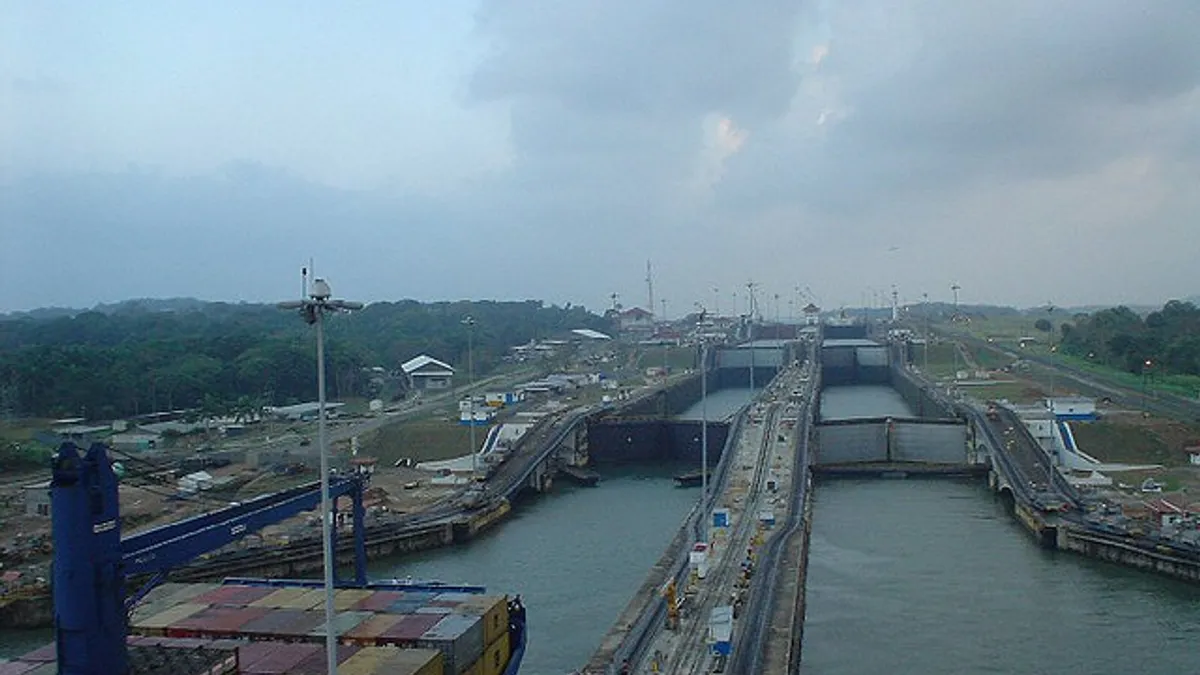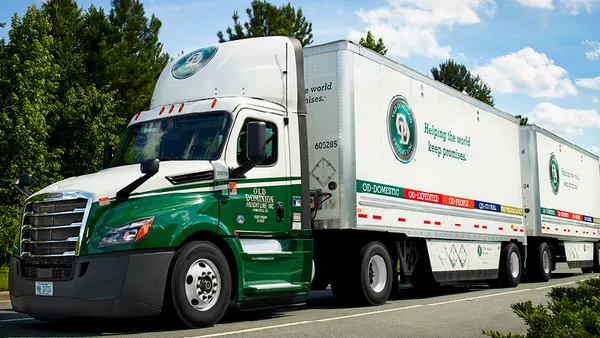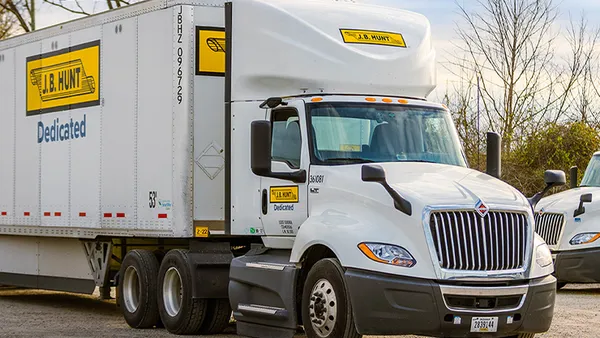Dive Brief:
- Rickmers Maritime Trust must wind down its business and will likely sell its 14 vessel charter fleet as a result of an inability to restructure its debts, which led to a default on several loans, JOC.com reported.
- The default on a nearly $200 million principal payment to HSH Nordbank and DBS Bank, as well as a missed $4.3 million coupon payment to bondholders in November, led to the failed restructuring plan that Rickmers had proposed to its creditors.
- With a potential buyer in place, vessel operations should be unaffected by the unwinding of the business, as customer charter obligations will be fulfilled.
Dive Insight:
Along with Hanjin, Rickmers Maritime Trust is another casualty of the upheaval in cargo shipping. In the case of Rickmers, a shifting landscape dealt the blow, as the company was sunk by the rapid expansion of post-Panamax, massive TEU-capable vessels, replacing its own smaller units for the bulk of charters.
While an overcapacity of available ships is frequently cited as one cause of the industry's woes, what's rarely mentioned is the presence of smaller vessels. Shipper preference is now with larger ships due to their capacity to carry more for less. And yet, Drewry Consultants have predicted that the era of ever-expanding capacity is close to an end, due to the strain it would place on ports struggling to accommodate current sizes.
In 2017, Mitsui O.S. K. Line (MOL) introduced the Triumph, 400 meters long and 58.8 meters wide, with a capacity of 20,000 TEUs. However, according to Drewry, any further expansion, perhaps up to 24,000 TEUs, significantly increases terminal costs and strain, offsetting the value achieved by a lower number of TEUs.













